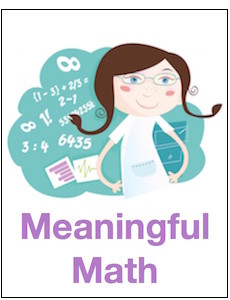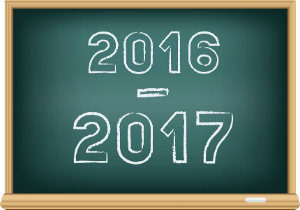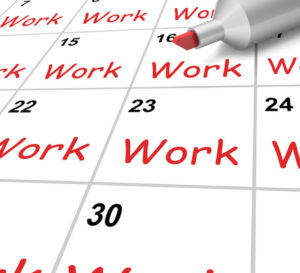How Did I Do? Reflecting on My Stretch Goals
A MiddleWeb Blog
 At the beginning of this school year I set three stretch goals for myself:
At the beginning of this school year I set three stretch goals for myself:
►Get to know my students in a meaningful way.
►Use formative assessment effectively.
►Be joyful and inspire enthusiasm.
After school was over (May 26th in my Alabama district), I waited a few days until I could feel the gears begin to shift…from hectic to just plain tuckered out…before I began to look back and reflect.
I’ll be honest, I found the last five or six weeks of school particularly difficult this year and I’m not really sure why. At one point, I remember thinking that I probably had not done one thing right all year. I wanted to throw everything out and start again.

Goal 1: Get to know my students better
This is a tough one. I tried to take more time to talk with the kids in my classes so I could find out about their lives away from school. I was able to forge good relationships with more of my students, but not all of them.
However, by the end of the year I was so tired myself that I found it hard to be as accessible as I should have been. This lets me know that I am probably trying to do too many other things, and I need to focus my energies on my top priorities, including my relationships with students.
I also wish I had devoted more time to calling and contacting parents. I did make some progress, and many times while talking to a parent this year, I discovered something that I did not know but really needed to know. Teenagers are reluctant to share information sometimes and parents can be an invaluable source of information.
So, this is one area where I know I need to keep working. Overall, I grade myself “adequate” with lots of room for improvement.
Goal 2: Use formative assessment effectively
In this area, my decision to focus on homework quizzes and suggested homework problems in lieu of checking homework was probably my most effective use of formative assessment. The way I had been assigning homework in the past just doesn’t work anymore.
I also think making the titles of my homework quizzes match the wording in content standards is something I will continue to do next year. This practice makes it easy for students to look back at their homework quizzes and know what they need to study for on their upcoming test. (For example: one quiz was titled “factoring a trinomial,” another was titled “subtracting polynomials.”) This was especially helpful because students’ most common complaint is that they don’t know how to study for a test in math.

The students completed this quiz outside of class. I gave the students a timeframe (one to two days), and they were to use it as a study guide for an upcoming test. I put whatever score they ultimately earned in my gradebook. The vast majority made a 100 because they could retake it as many times as they wanted. I mainly used it for vocabulary and foundational questions.
My students actually requested that I create this study tool before tests because they said it was helpful to them. It’s very similar to studying with note cards, but I liked our Canvas quizzes because they’re quickly accessible online and did provide the added incentive of a grade.
Overall, I feel like I’m in the beginning stages of creating effective formative assessment. I have recently become focused on differentiation, and I’ve realized that formative assessment is key to being successful in this area. So this will likely be something I work on again next year (and the year after).
Goal 3: Be joyful and inspire enthusiasm
This was another challenging goal. I started out great. However, along the way I let something (or a lot of somethings) rob me of my enthusiasm. I did my best to project joy in my classroom, but by the end of the year I struggled on many days.
Please don’t misunderstand me. I love my job and I genuinely like and care about my students. I’m not sure what happens that makes it difficult to maintain a joyful attitude through the last day of school. I think this is something I’m going to have to examine and work on.
As I think about it now, it might be related to some of the demands made of my time.

Also, paperwork and the little things that have to be done that don’t actually relate to teaching: little things that are only supposed to “take five minutes” that add up to large portion of my time.
Another challenge: my own demanding pursuit of improvement. Often, for me, reflection can quickly turn to criticism and a demoralizing sense of failure. Over the summer, when I can get some perspective, I plan to think about what I can do to avoid losing my joy and enthusiasm over the course of the school year.
It could be a matter of saying no to certain things and learning to be more balanced regarding how many hours I work during the school year. Teaching is the only job I have ever wanted, and I want to be happy and content doing it!
Does setting goals work?
For me, setting goals is very helpful. Many days when I felt low, I reminded myself of my goal to be joyful and enthusiastic and that was enough to help me feel more positive for my students. Also, my spoken goal to get to know students better encouraged me to talk to my students more and to look for opportunities to go beyond a surface relationship.
Teaching requires attention to so many different things. Goals serve as anchor points.
Goals for next year
I’m too busy processing this year to even think about next year! I am going to take some time off from thinking about school. My plan is to spend time doing things that refresh me before I start working on lesson plans and goals for 2017-18.
I am taking a long road trip with my family, going to a Twitter math camp, and catching up on some reading (including Accessible Algebra by Anne M. Collins & Steven R. Benson, and The Happiness Project by Gretchen Rubin ).
After a little time off, I hope to tackle my plans for next year with a fresh outlook, aided by what I have learned in trying to meet the goals I set for myself this year. Have a great summer!




































